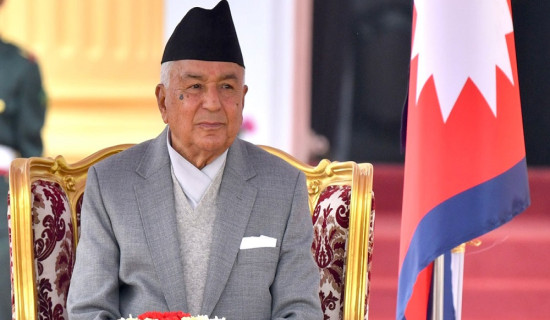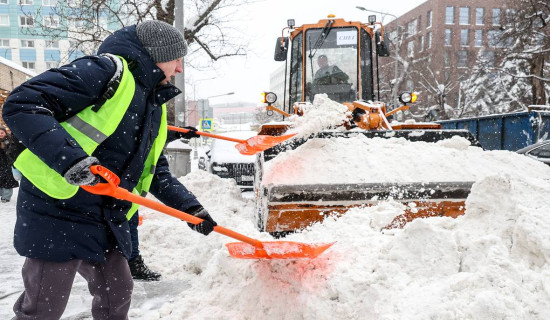- Friday, 30 January 2026
Health officials urge people to be extra cautious as water-borne disease, COVID-19 cases increase
By
Mahima Devkota, Kathmandu, July 4: With the rising cases
of water-borne diseases such as cholera and diarrhea, and COVID-19 lately in
the country, health officials have urged
the people to strictly adhere to the health safety standards saying that it is
the best curative and preventive approach to contain communicable diseases.
A total of 17 cases of cholera have already been confirmed
in the Kathmandu Valley so far while other water-borne diseases like malaria,
diarrhea, and typhoid are also recorded in different parts of the country.
On top of that, COVID-19 cases are increasing in the
country. Health officials, however, are of the view that simple measures like
adhering to health safety standards will work wonders in preventing the
contraction of communicable diseases in any situation.
Dr. Samir Kumar Adhikari, a joint spokesperson at the
Health Ministry of Health and Population, said that rising COVID-19 cases and
other water-borne diseases simultaneously without a doubt will strain health
resources in the country.
But, the early preparation on the part of the
government and following health safety standards on the part of the public will
help both preventive and curative measures of communicable diseases including
COVID-19.
He said, “We have directed concerned health agencies
to monitor the situation closely, start necessary preparations, including
logistic arrangements.” “Health workers have been directed not to leave their
workplace, an emergency can occur at any time.”
“We have focused on community awareness about diseases
as well as adhering to the health safety standards. The curative approach is
prioritized, however, preventive measures are also put in place,” said Dr.
Adhikari.
A highly contagious Omicron sub-variant B.A.5 was
detected for the first time in Nepal on July 3. For the past few days, the
number of COVID-19 cases is increasing in most parts of the world and two new
sub-variants B.A.4 and B.A.5 have been responsible for that.
According to the MoHP, the start of the monsoon season
brings natural calamities such as floods, and landslides polluting water
resources and giving shelter to bacteria and mosquitos which cause diseases like
cholera, dysentery, Kal-Azar, and typhus.
Officials at the Health Ministry said that they have
alerted concerned health agencies throughout the country about the growing risk
of communicable diseases- water-borne, vector-borne, and COVID-19, and have
directed the concerned authorities and institutions to start preparing to deal
with any situation.
Dr. Manisha Rawal, Director of the Sukraraj
Tropical and Infectious Disease Hospital (STIDH), said the start
of the monsoon season this year saw an alarming rise not only in cholera cases
but also in COVID-19 cases. Now, the hospitals are admitting patients suffering
from those diseases in increasing numbers.
She said, “Half of the intensive care unit beds have
already been occupied by patients and if the coronavirus cases surge further,
then we will have a two-fold setback.”
Frequent hand washing, eating boiled and properly
washed food, maintaining hygiene in the home as well as not missing facemask
while stepping out of the house amid COVID-19 had helped in containing many water-borne and vector-borne diseases in the country. However, the health instructions are
being loosely trailed following the decrease in the COVID-19 cases in the
country.
Nawaraj Gautam, information officer at the STIDH, said
that Kathmandu has reported over a dozen cases of cholera in the past few
weeks. Around 12-13 patients with serious diarrheal conditions have been
visiting the hospital for treatment daily,
He said, “We are ready in the logistics part, however,
it is being discussed if additional manpower needs to be added or not.” There
are not any COVID-19 patients admitted to the hospital.
Dr. Ram Bikram Adhikari, spokesperson for the TU
teaching hospital, said that even though there are not any admitted cases of
water-borne diseases, COVID-19 cases are increasing lately.
Saying that in three cases that tested positive for
COVID-19, one is admitted to the hospital, he assured that the hospital is
ready for any situation. Both manpower and logistics departments are on
standby.
Dr. Sher Bahadur Pun, Chief of the Clinical Research
Unit at Sukraraj Hospital, said, “We have been voicing about the risk of
cholera and other water-borne diseases, because of piling garbage and polluting
water sources. But, it seems our voices did not get due attention.”
A study carried out by the Epidemiology and Disease
Control Division (EDCD) shows that nearly 70 percent of drinking water being
used by the residents of Kathmandu Valley is contaminated.
Dr. Achyut Karki, spokesperson for the Bir Hospital,
said that the disaster management committee in the hospital has sat on a
meeting following the notice from MoHP and is all set for any retribution
against any communicable diseases including COVID-19.
The diagnostic equipment such as testing kids for
cholera and COVID-19 are all set and hospital staff both medical and non-medial
are working closely for any future upheavals.
Currently, there are no cases of cholera and COVID-19
admitted at the Bir Hospital, he said.

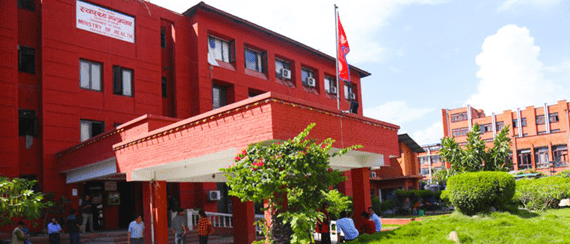


-square-thumb.jpg)

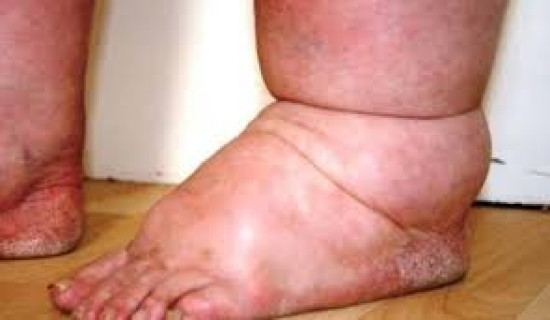
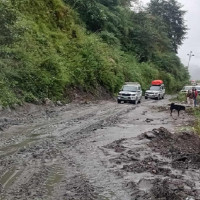

-original-thumb.jpg)

-original-thumb.jpg)
-original-thumb.jpg)
